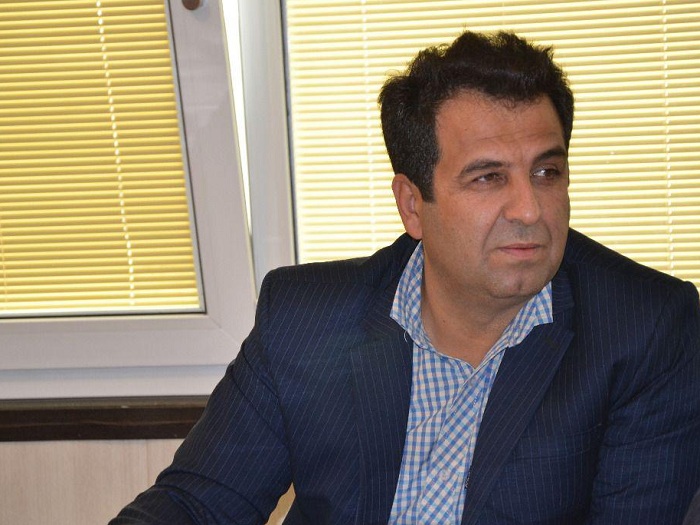State mines rights returned to Kurdistan province

Deputy Minister of Mines Affairs of Kurdistan Organization of Mines and Commerce regarding the role of mines in the development of the province said: Undoubtedly, mines have a great role in the development of provinces, especially in less developed provinces such as Kurdistan, and will not lead to economic profit until they are processed in their proper location. Was.
According to Iran's International Stone Exhibition, Mehdi Moradi pointed to the number of active mines in the province: Currently, valuable mines, including gold, iron ore, decorative stones, silica and barite, which play a key role in the development of Kurdistan province, are all active. are.
He added: Mines in deprived areas will create processing plants, gold production and employment creation and eventually development in that area.
Moradi said that about fifty percent of the country's gold is currently produced in Kurdistan province: Last year, three tons of gold were produced in Kurdistan province, while total gold extraction was about six tons.
Moradi stated: Kurdistan province is one of the most prone provinces in the country in terms of variety of minerals including ornamental and non-ornamental stones, gold, silica, feldspar, dolomite, barite, carcass, poke and building materials.
According to him, so far, four hundred and seven mines have been licensed in the province, of which 150 are active and the rest are inactive.
Moradi said: Unfortunately, in 2010 and 2011 due to the discussion of Mehr housing in the country, carcass stone mines were grown and exploited as fungi which many of these mines are currently inactive.
Deputy Minister of Mines Affairs of Kurdistan Organization of Mines and Commerce said: Sariguni Gold Mine has paid about 60 billion tomans of state salaries over the past year and has been added to the treasury, even if the state salaries are derived from mines. Return to the province of Kurdistan will be spent on building the necessary infrastructure for mines and increasing factory processing.
He said the role of mines in the province's employment creation is very important and said: Currently, four thousand people are working in the province's mines.
Moradi pointed out that one of the mining activities in the province is related to the exploration sector: The four areas of Bijar, Saqez, Divandareh and Qorveh have been approved by the Imidro Geological Survey since 2013 with a total area of 12,000 square kilometers.
Moradi reiterated that the geophysical flight of the Saqez area has led to the discovery of seven promising gold and iron ore deposits in the area, which is hoped to increase the province's mineral reserves.
He described the challenges facing the miners and the miners as popular and administrative and said: One of the existing administrative challenges is the discussion of natural resources, which is one of the miners' duties to conserve natural resources.
Deputy Minister of Mines Affairs of the Kurdistan province's industry, mining and trade organization, pointing out that one of the tasks of the province's industry, mining and trade organization is to support production, he said. Consider collaborating with the province's mining, industry and trade organization.
Another challenge to the issue of mines is environmental and cultural heritage, he said, adding: "The Environment and Cultural Heritage has entered the mine in a very rigorous manner without the necessary studies, hoping that such interference will be greatly reduced.
Moradi described the local dispute as the third challenge for miners and miners, saying: Ninety percent of the votes issued by judicial authorities are in favor of the people and only ten percent in favor of mines and miners, hoping that the judiciary will proceed according to the article. Nineteen mines act and prevent any disturbance to the mine and the miners.
According to the province's mines capacity, the mines will triple their capacity if the mines are processed, as well as the steel chain that was first implemented, which would employ up to 2,000 people, which would double that level. Was.
Regarding the crude problem of mines in Kurdistan province, he added: Unfortunately for Kurdistan province marble is not due to lack of investor but due to lack of taste of raw purchasing which if it reaches processing stage naturally except for employment and development of stone value Marble will also multiply.
Deputy Minister of Mines Affairs of Kurdistan Organization of Mines, Trade and Commerce noted: If related units stop parallelism and do not consider mining as destructive, it will undoubtedly have an important role in the development of mines in the province, especially the development of the province.
* ISNA










